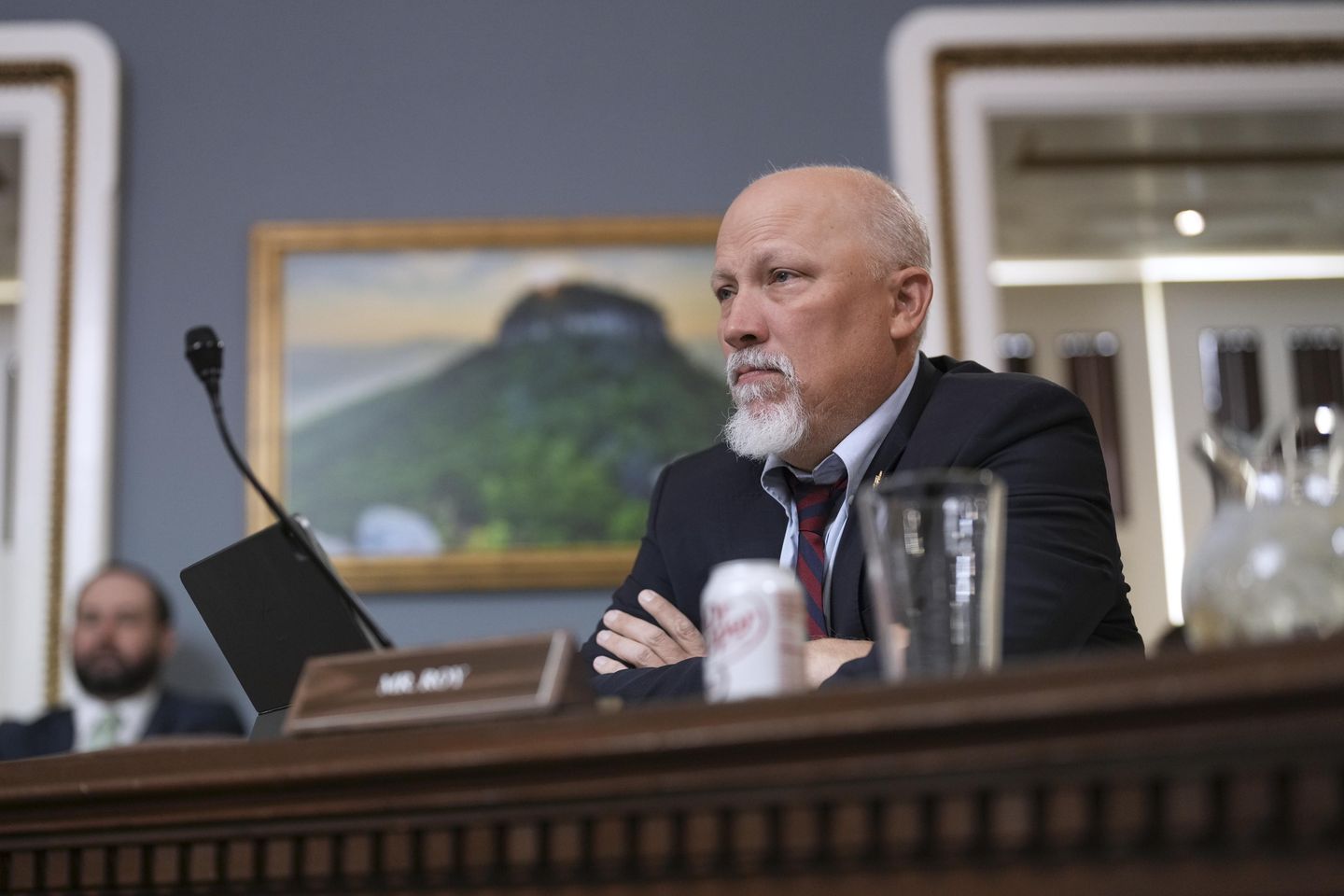
House Speaker Mike Johnson’s push to pass the Senate’s budget rewrite stalled on the House floor Wednesday evening after a failed attempt to coerce dissenters to support it, forcing the speaker to punt a vote to the following day.
What exactly that vote is on remains to be seen, as House Republicans are contemplating changes to the budget to force the Senate to accept higher spending cuts.
Both chambers need to adopt a unified budget blueprint to unlock the filibuster-proof reconciliation process that Republicans plan to use to pass sweeping tax and spending cuts, border security and defense funding and energy policy changes.
Fiscal hawks are upset about the Senate’s lower bar for spending cuts in the reconciliation package that the budget would tee up. The Senate set a $4 billion floor for spending cuts in instructions to its committees, compared to a $1.5 trillion spending cut floor provided to House committees.
There appeared to be an initial breakthrough after a group of the House GOP holdouts, led by Freedom Caucus Chairman Andy Harris of Maryland, met with Senate Majority Leader John Thune of South Dakota, Majority Whip John Barrasso of Wyoming and Finance Chairman Mike Crapo of Idaho.
“We’re all on the same page,” Mr. Barrasso said. “House and Senate Republicans are very committed to serious and significant spending cuts.”
That momentum was quickly lost as Mr. Harris and the House members in the meeting relayed what was discussed to their fellow holdouts.
Mr. Johnson, Louisiana Republican, then corralled more than a dozen dissenters away from the House floor for private conservations. A floor vote on an unrelated bill was held open for over an hour while they negotiated.
However, the confab was unsuccessful. The speaker said after emerging from the huddle that there were “a small subset of members who weren’t totally satisfied.”
The House will advance the budget “one way or the other” on Thursday, Mr. Johnson said.
“We’re going to talk about maybe going to conference with the Senate or adding an amendment,” Mr. Johnson said. “We are going to continue to move forward. This is all positive. This is part of the process.”
The House did have a minor victory with a 216-215 test vote on rules to start debate on the budget.
Mr. Johnson said he spoke with President Trump, whom he described as understanding.
“He wants us to do this right and do it well,” he said. “And sometimes it takes a little bit more time to do that.”
Mr. Trump had cranked up his pressure campaign on House Republicans to fall in line and support the revised budget resolution, but fiscal hawks said they want commitments from the Senate about spending cuts that can be achieved in the final bill.
Rep. Lloyd Smucker said House leadership and the holdouts are coalescing around a “mechanism to ensure there’s spending cuts in the final reconciliation bill, similar to what we have in the House.”
That could “potentially” involve amending the Senate instructions, he said.
Rep. Tim Burchett, Tennessee Republican, believed that the House could advance the budget on Thursday.
“I think we’re very close,” he said. “I think a lot of people have gotten to their conclusion.”
Rep. Eric Burlison, Missouri Republican, said he wanted assurances that the Senate “can’t back out of” a minimum level of spending cuts.
“We just don’t trust the Senate,” he said. “The Senate is prone to set up, to give us the shaft, like they’ve done for decades and decades. Every time we get to this moment, it’s like Lucy with the football. They pull the football.”
There is no official deadline for adopting the budget other than before Republicans bring the reconciliation package to the floor. However, the budget resolution does contain May 9 deadlines for House and Senate committees to report their pieces of the reconciliation bill.















